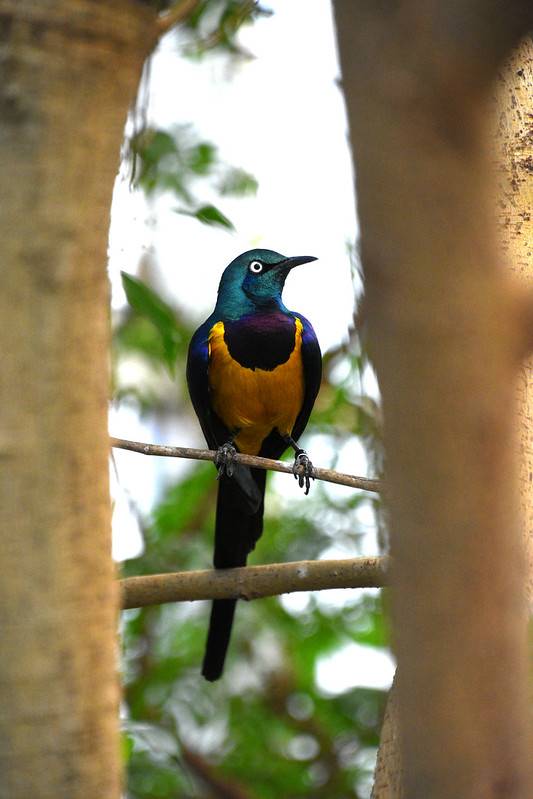

A beautiful bird covered head to tail in bold, vivid, metallic shades of green, yellow, and ultra-violet blue on the throat and wings.
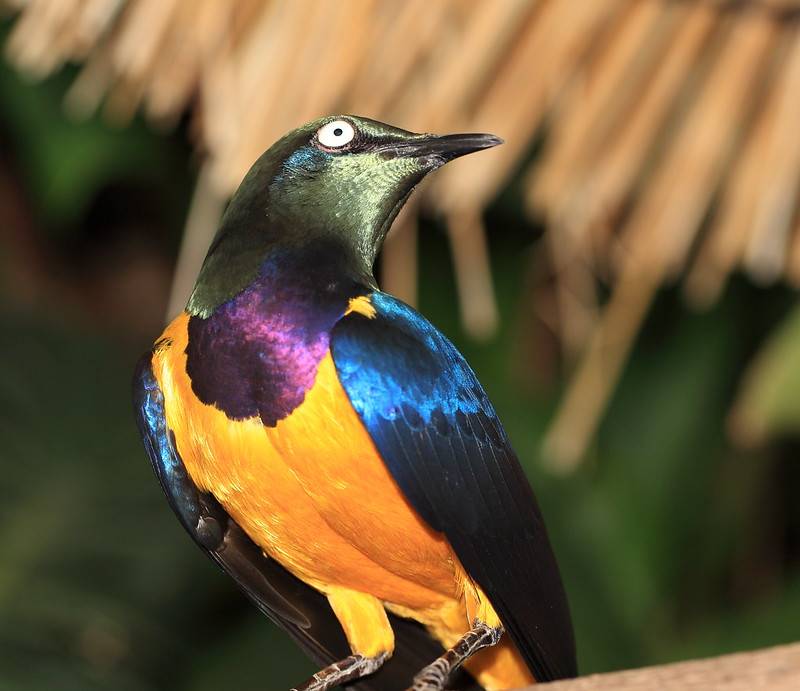
The golden-breasted starling (Lamprotornis regius), is also known as sometimes known as the royal starling for good reason. This species's head is a metallic shade of green, with the upper back being a similar color. The breast and belly are a golden yellow, with violet-blue on the wings, back, and neck.
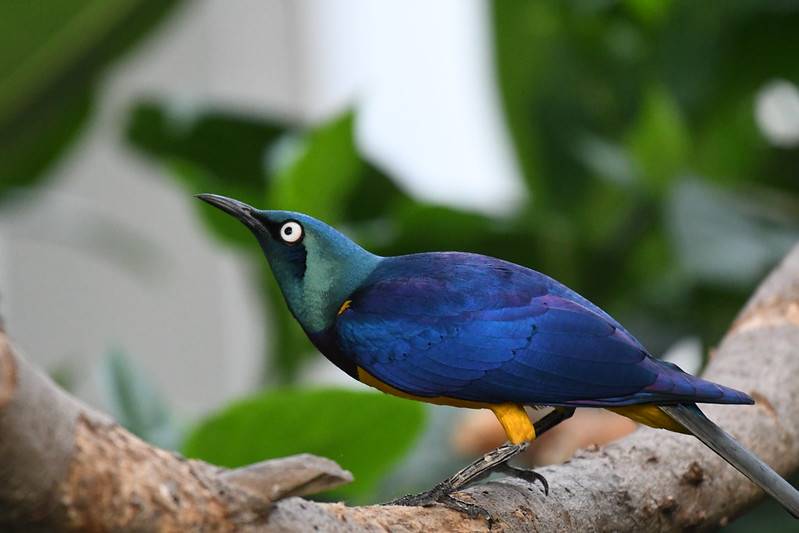
The bill is dark, as are the legs, all finished off nicely, with long tail feathers.
The female looks very similar to the male, with juveniles looking a little duller.
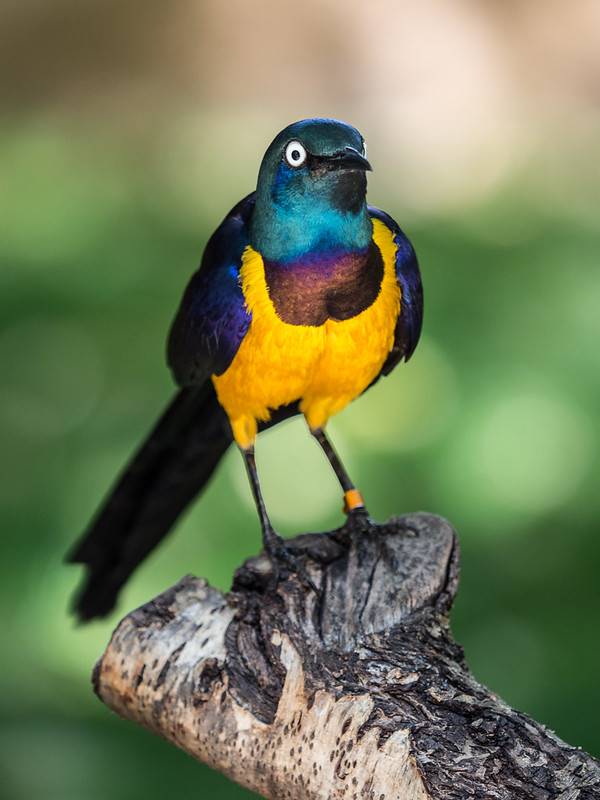
This bird occupies a large range from Somalia to Ethiopia, through to Kenya, and then Tanzania.

The golden-breasted starling prefers dry, arid areas, usually scrublands and savannas, to a lesser extent also grasslands.
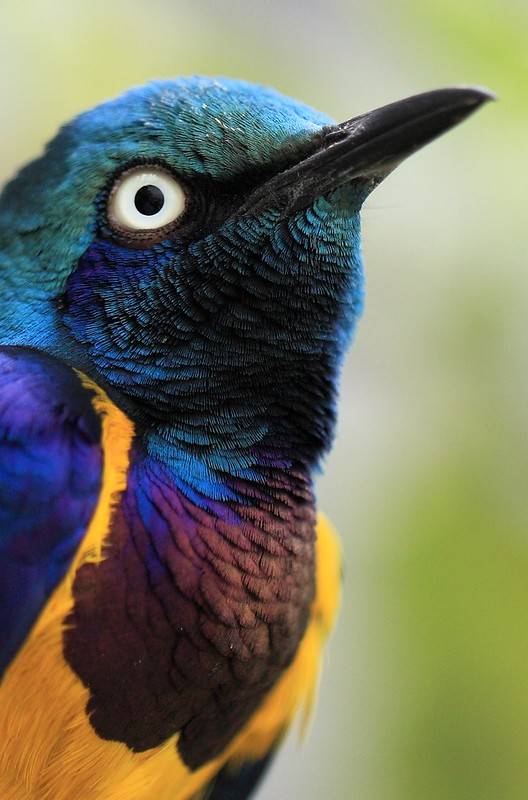
They dine on insects, often catching them on the wing, or by digging up termite mounds.

They will also eat some fruit and berries.
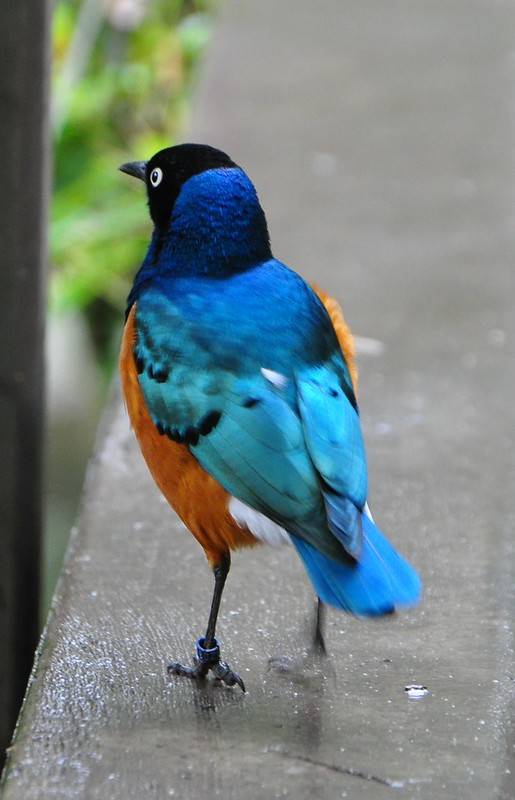
These birds nest in tree holes where a cup-shaped nest is built of leaves, roots, and other plant materials they find. The female lays 3-5 eggs which she incubates for about 11-14 days. Both parents feed the hatchlings along with other birds from the wider community. Chicks are fully-fledged after about 3 weeks.
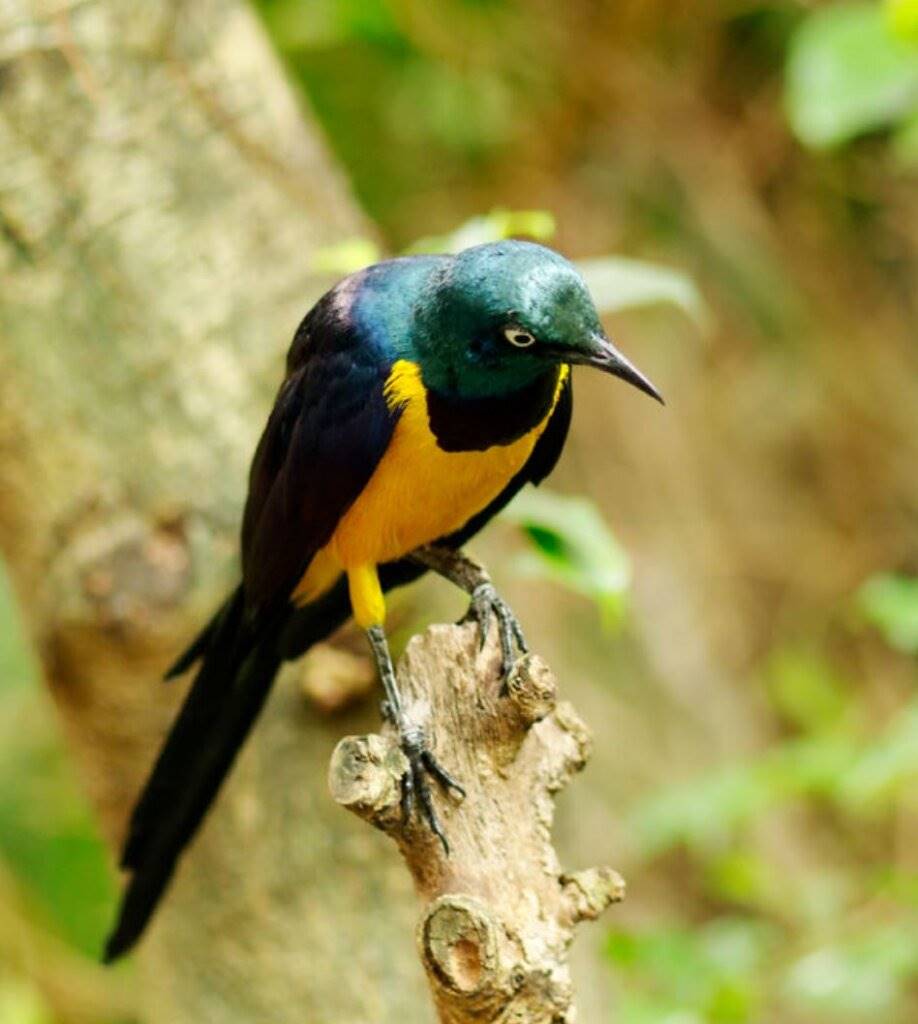
This species has a very large breeding range and is described as locally common. The population is thought to be stable in the absence of evidence of any decline or threats.
